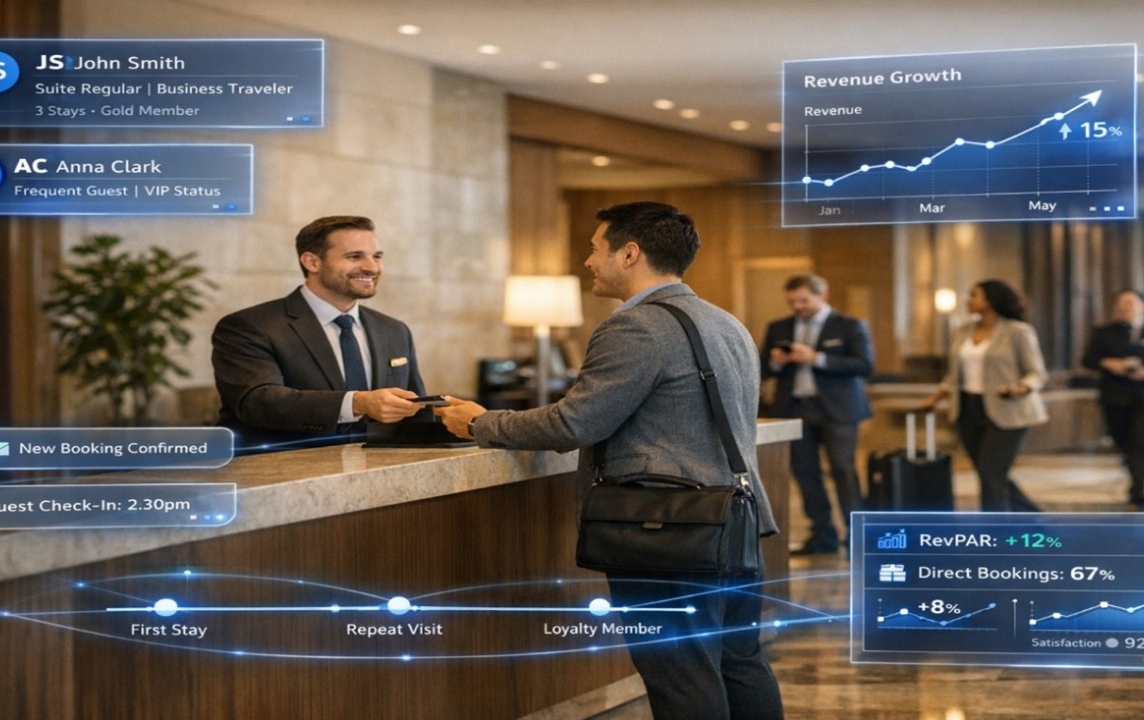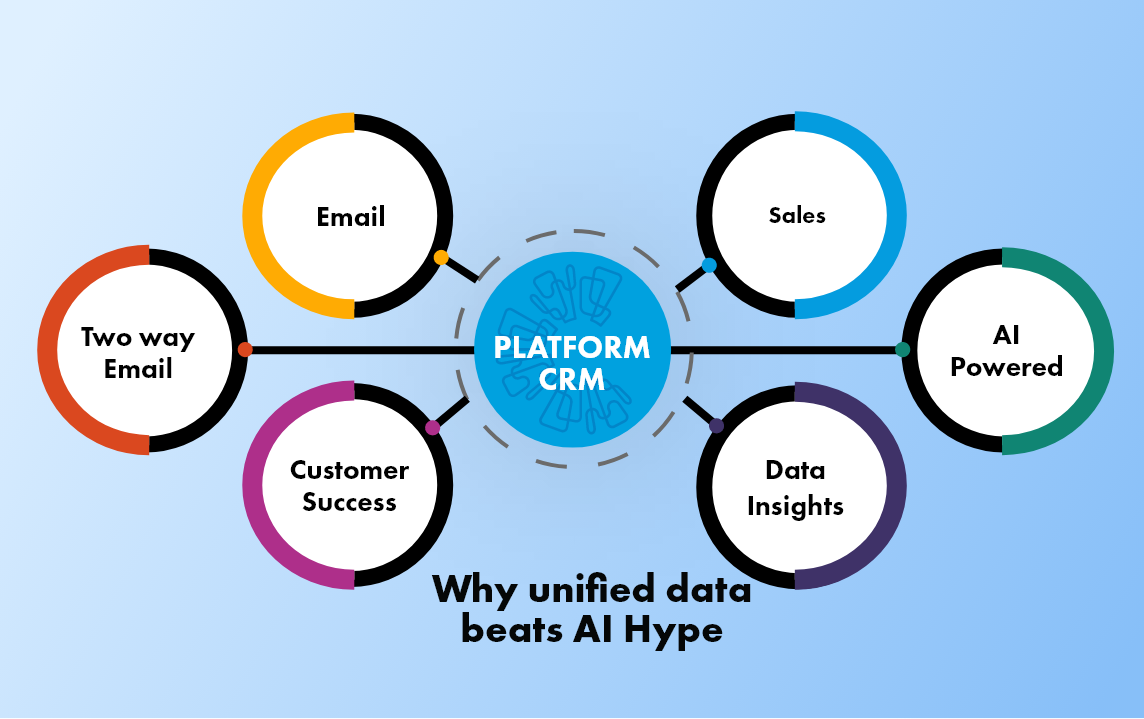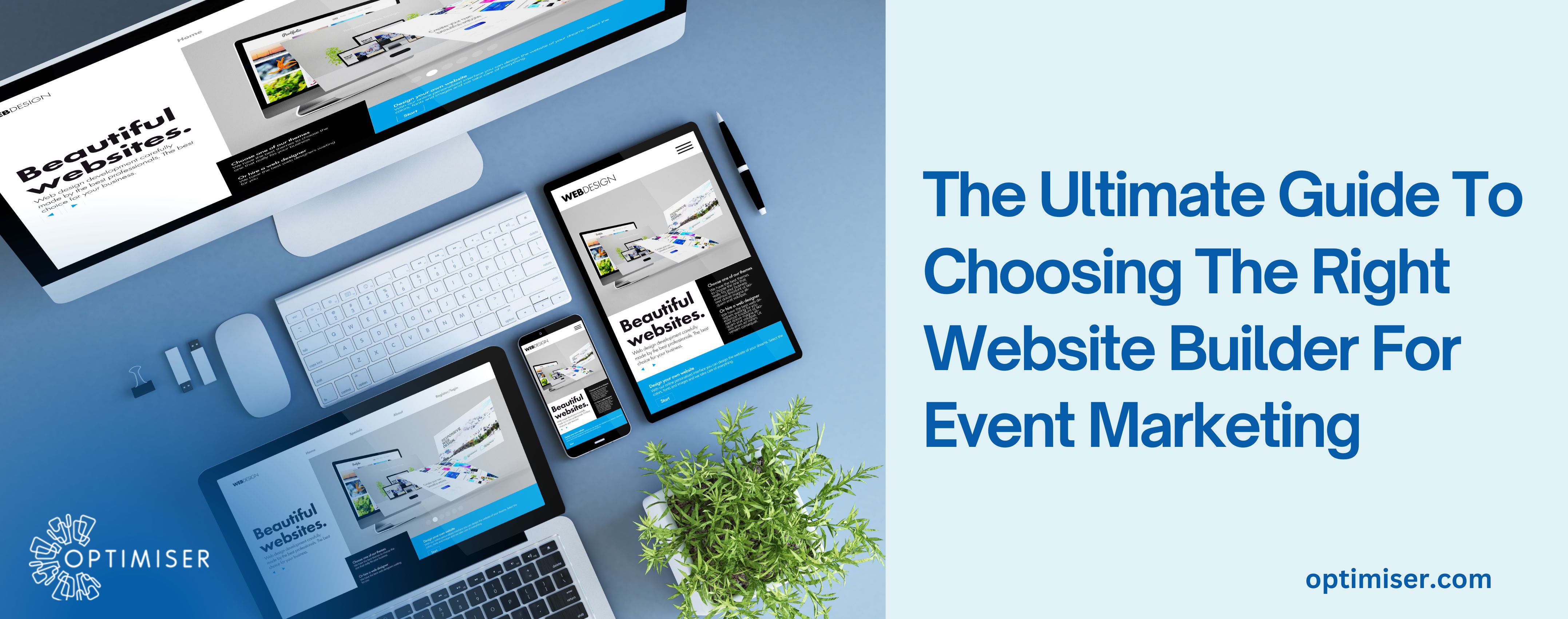
The Ultimate Guide To Choosing The Right Website Builder For Event Marketing
Event marketing is a promotional strategy that involves creating or sponsoring an event to promote a brand, product, or service. Event marketing done through CRM and event management software offers several benefits to businesses, such as the ability to engage with potential customers, increase brand awareness, and generate leads. Events also provide opportunities to gather valuable customer feedback and insights, which can inform future marketing strategies.
Why Do Events Need A Website?
- Provides Information: Websites are an effective way to provide potential attendees with all the necessary information about the event, such as the date, time, location, agenda, and speakers. This information is essential for attendees to plan their participation and can also help build excitement and anticipation for the event.
- Increases Visibility: By creating a website for an event, businesses can increase their online visibility, making it easier for potential attendees to discover and learn more about the event. This can be achieved through search engine optimisation (SEO), social media sharing, and other digital marketing strategies.
- Online Registration: Websites provide a convenient and secure platform for attendees to register and purchase tickets for the event. This can streamline the registration process, reduce administrative costs, and improve attendee satisfaction.
- Builds Credibility: A well-designed website can help establish credibility and legitimacy for the event. It shows that the business is committed to providing a professional and high-quality experience for attendees, which can help attract more participants.
- Provides Engagement Opportunities: Websites offer opportunities to engage with potential attendees through various channels, such as email, social media, and online forums. This can help businesses build relationships with attendees and create a sense of community around the event.
- Data Collection: Websites can also provide businesses with valuable data and insights about their attendees, such as demographics, interests, and behaviours. This information can inform future marketing strategies and help businesses improve the overall event experience.
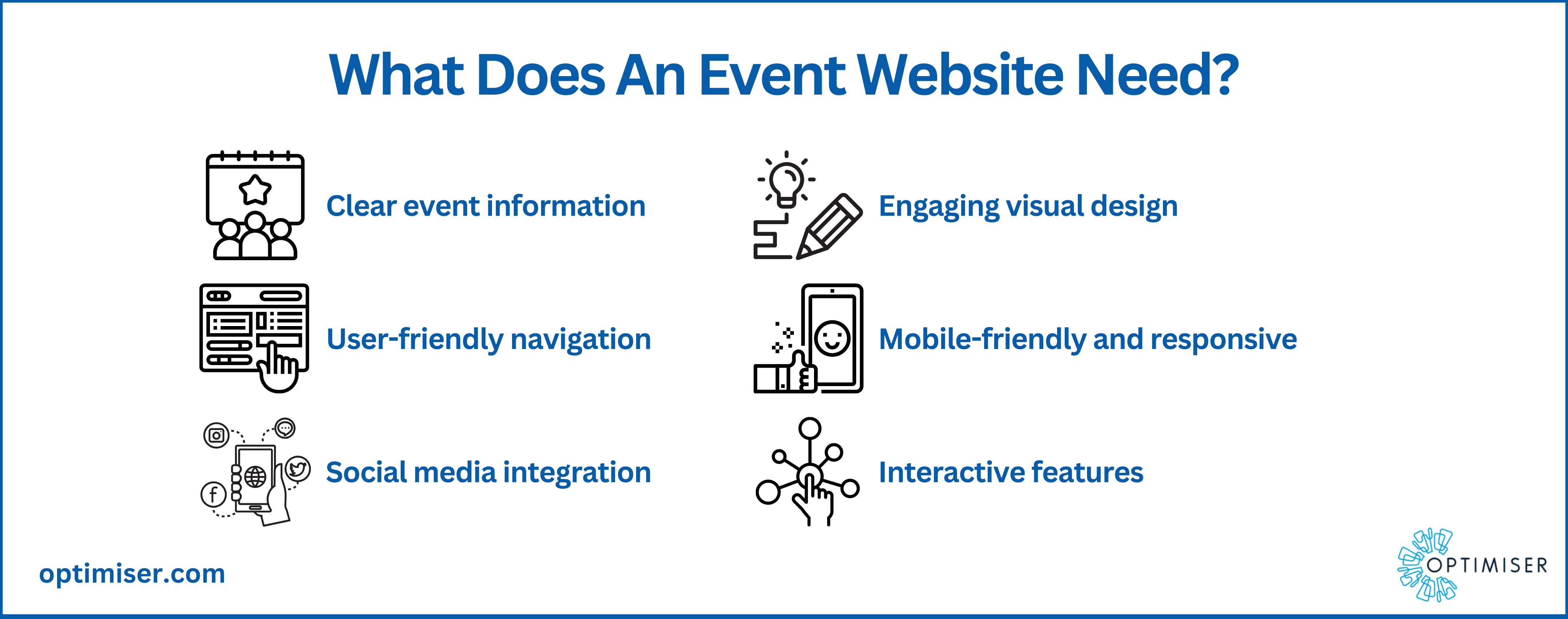
Event Website Essentials
- Event Information: The website should provide all the essential information about the event, such as the date, time, location, agenda, and speakers. This information should be easy to find and clearly communicated to potential attendees.
- Registration and Ticketing: The website should provide a convenient and secure platform for attendees to register and purchase tickets for the event. This should include options for different ticket types, payment methods, and registration deadlines.
- Promotional Content: The website should include compelling promotional content, such as videos, images, testimonials, and social media posts, to build excitement and interest in the event. This content should be shareable and easy to access on the website.
- Contact Information: The website should include clear and accessible contact information for attendees to contact the event organisers with any questions or concerns. This should include email addresses, phone numbers, and social media handles.
- Interactive Features: The website should include interactive features, such as a live chat or Q&A section, to engage with potential attendees and create a sense of community around the event.
- Mobile Responsiveness: The website should be optimised for mobile devices to ensure that attendees can access and navigate the website easily from their smartphones or tablets.
- Analytics and Tracking: The website with CRM for event management software should be set up to track key metrics, such as website traffic, user behaviour, and registration data. This information can provide valuable insights into the effectiveness of the event marketing strategy and inform future marketing efforts.
How To Choose The Right Website Builder?
Choosing the right website builder for event marketing is an important decision, as it can significantly impact the effectiveness of the event promotion and attendee engagement. Here are some key factors to consider when selecting a website builder for event marketing:
- User-Friendliness: The Optimiser- Touchpoint website builder with Event Suite integration is user-friendly, even for those without technical skills. It has an intuitive interface and drag-and-drop functionality to make it easy to design and customise the website.
- Customisation: The website builder should allow for customisation of the website design, layout, and features to align with the brand and messaging of the event. This can include options for different templates, colours, fonts, and multimedia.
- Integration: The website builder should integrate with other marketing tools, such as email marketing platforms, social media, and event registration software, to streamline the event marketing and attendee registration process. Best CRM software for event management, Optimiser is easily integratable with third-party applications.
- SEO Optimisation: The website builder should have SEO optimisation features to ensure that the event website ranks high in search engine results, making it easier for potential attendees to find and register for the event.
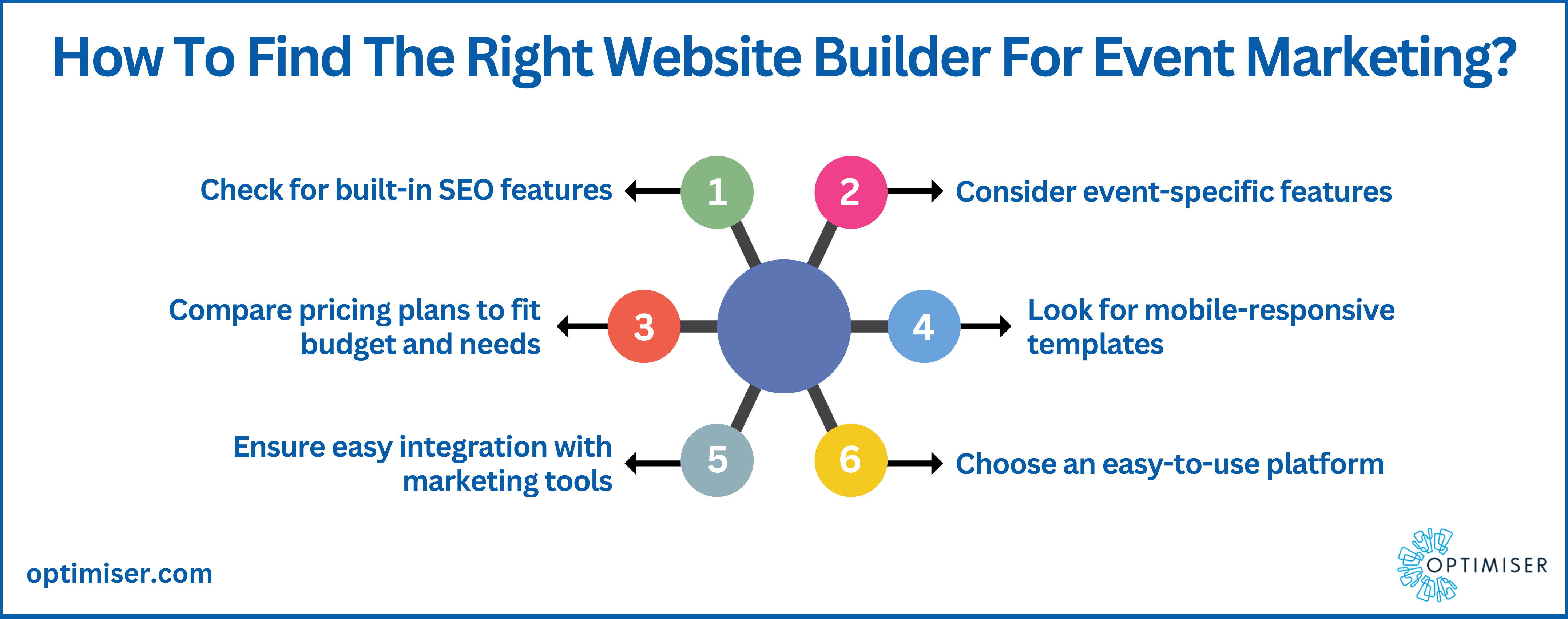
Also Read: From Attendance To ROI: Eye-Opening Event Industry Stats And What They Mean For Your Business
- Mobile Responsiveness: The website builder should have mobile responsiveness features to ensure that the event website is optimised for mobile devices, making it easy for attendees to access and navigate the website from their smartphones or tablets.
- Support: The website builder should provide reliable and responsive customer support to assist with any technical issues or questions that may arise during the website building process.
- Security: The website builder should have robust security features to protect the personal and financial information of attendees who register and purchase tickets through the website.
- Analytics and Tracking: The website builder should have built-in analytics and tracking features to monitor website traffic, user behaviour, and registration data. This information can provide valuable insights into the effectiveness of the event marketing strategy and inform future marketing efforts.
- Cost: The website builder should be affordable and offer a range of pricing options to fit the budget and needs of the event. Ultimately, the choice of a website builder for event marketing will depend on the specific needs and goals of the event.
Summary
An effective event website should provide a seamless and engaging experience for potential attendees, making it easy to find information, register for the event, and engage with the event organisers. By including key elements, businesses can create a compelling online presence that drives attendance and generates a positive return on investment.

30 days free trial. No credit card required
 One powerful platform
One powerful platform
 Simple to use
Simple to use
 Comprehensive
Comprehensive

